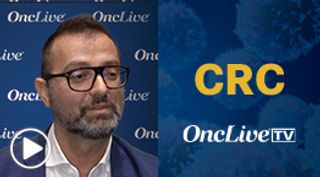
Colorectal Cancer
Latest News
Latest Videos

CME Content
More News

Tanios S. Bekaii-Saab, MD, discusses questions that have arisen regarding the use of immunotherapy in patients with MSI-H/dMMR and MSS/pMMR CRC.
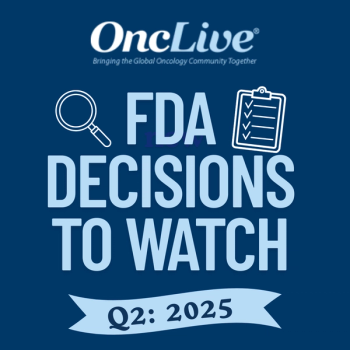
Here is your Q2 2025 preview spotlighting 7 FDA decisions to watch, including upcoming PDUFAs for nivolumab/ipilimumab, belzutifan, UGN-102, avutometinib/defactinib, and more.

Yufei Liu, MD, PhD, discusses current radiation strategies, including SBRT and IMRT, along with the benefits of radiation therapy in colorectal cancer.

Andreas M. Kaiser, MD, discusses strategies to reduce postoperative complications and determine surgical eligibility in patients with CRC.

Andreas M. Kaiser, MD, discusses the differences between minimally invasive surgical approaches for colorectal cancer in community vs academic settings.

The top 5 OncLive videos of the week cover insights in colorectal cancer, myeloma, HER2+ breast cancer, and KRAS G12X+ pancreatic ductal adenocarcinoma.

Sewit Teckie, MD, discusses the advantages and disadvantages of a cfDNA blood-based assay compared with colonoscopy in diagnosing colorectal cancer.

Thierry André, MD, discusses findings from the phase 3 CheckMate 8HW trial of nivolumab plus ipilimumab in MSI-H/dMMR mCRC.
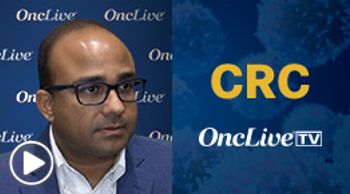
Kanwal P.S. Raghav, MBBS, MD, details the preliminary safety of a ABBV-400 regimen for the treatment of patients with previously treated mCRC.
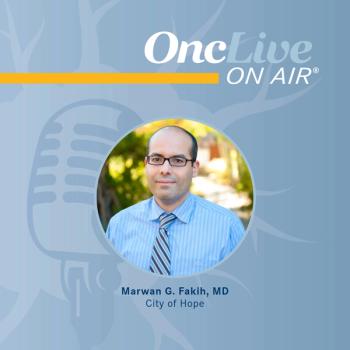
Marwan G. Fakih, MD discusses the significance of this approval, key findings from the pivotal CodeBreaK 300 trial, and how this combination fits into the current KRAS G12C–mutated mCRC treatment paradigm.
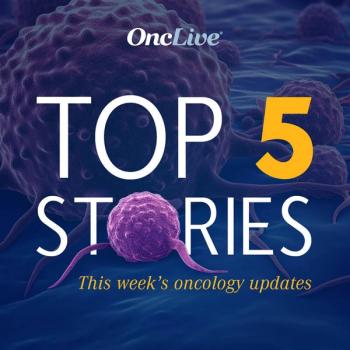
Perioperative pembrolizumab sBLA gets priority review in HNSCC, nivolumab/ipilimumab sBLA in MSI-H/dMMR CRC is under review, and more from OncLive this week.

E. Gabriela Chiorean, MD, FASCO, discusses the FDA approval of encorafenib plus cetuximab and chemotherapy for patients with BRAF V600E–mutated mCRC.

China’s NMPA has granted priority review to an NDA for neoadjuvant ipilimumab injection plus sintilimab in MSI-H or dMMR colon cancer.

Douglas B. Flora, MD, LSSBB, discusses the rationale for assessing BXQ-350 plus mFOLFOX7 and bevacizumab in a phase 1/2 trial of patients with mCRC.

Hideaki Bando, MD, PhD, discusses efficacy outcomes with TAS-102 as a pre-emptive treatment in patients with MRD-positive CRC following curative resection.

The combination of nivolumab and ipilimumab is under priority review for the frontline treatment of patients with unresectable/metastatic MSI-H/dMMR CRC.

Filippo Pietrantonio, MD, discusses updated efficacy with amivantamab as monotherapy and in combination with chemotherapy in metastatic colorectal cancer.

Mirdametinib is approved in select plexiform neurofibromas, experts preview top ASCO GU abstracts, NCCN updates ctDNA stance in several tumors, and more.

The NCCN guidelines have been updated to specify the standing of ctDNA as a biomarker in colon and rectal cancer, as well as in MCC.

Marwan G. Fakih, MD, discusses the FDA approval of sotorasib plus panitumumab in KRAS G12C–mutated metastatic colorectal cancer.
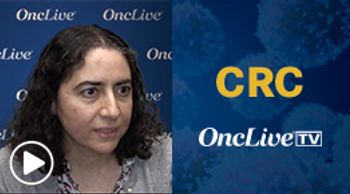
Rona Yaeger, MD, details the efficacy of adagrasib/cetuximab in heavily pretreated patients with KRAS G12C–mutant mCRC.

Encorafenib combination boosts survival in BRAF V600E+ mCRC, pertuzumab biosimilar BLA is under review for HER2+ breast cancer, and more from OncLive.

The combination of cabozantinib and nivolumab showed 16-week disease control in microsatellite stable colorectal cancer.

Marwan G. Fakih, MD, discusses the FDA approval of sotorasib plus panitumumab for adult patients with KRAS G12C–mutated metastatic colorectal cancer.

Envafolimab plus suvemcitug and FOLFIRI demonstrated preliminary activity and tolerability in second-line MSS/pMMR CRC.










